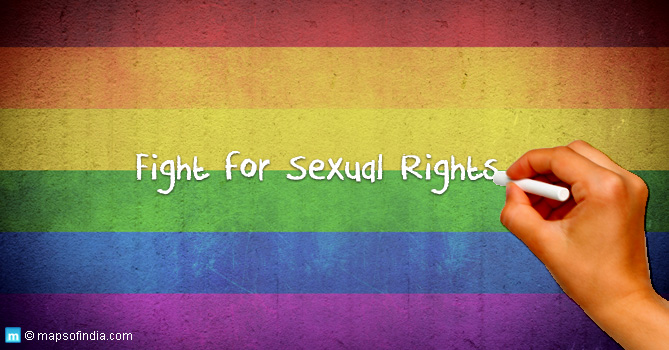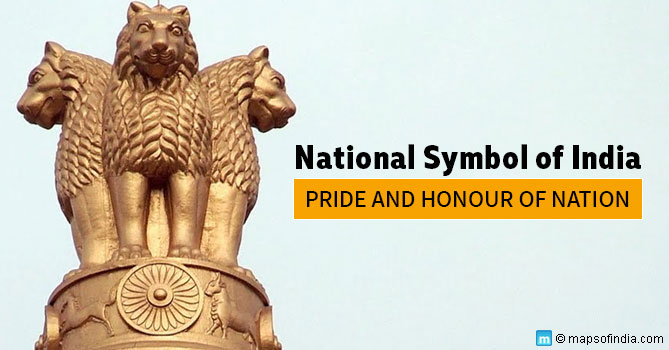The Chapter XVI Section 377 of the Indian Penal Code was introduced in 1860. This clearly states that any sexual activity which is against the supposed laws of nature is a criminal offence and can be punished by law. Arguably, this includes all kinds of homosexual activities as well as transgenders and people with bisexual orientations. Also, the ruling is uniform, irrespective of the matter of consent between the participants in question.
What does the Section state?
Section 377 states that any voluntary carnal intercourse done in an unnatural way and perpetrated against a woman, man, or an animal can be punished by law. The punishment in this case involves imprisonment for life. At certain times, the imprisonment may be for a reduced term such as 10 years and the concerned individual/s may have to pay fines as well. As per the law, any act of penetration will be regarded as carnal intercourse and will be sufficient to get the perpetrators punished. Thus, by definition, this law includes all sexual activities that are anal in nature. Even heterosexual activities such as anal penetration and fellatio come under the ambit of this law and as such may be punished.
Section 377 in courts – a look back
2nd February 2016
This represents a watershed moment in the history of LGBT rights in India as the Supreme Court decreed that all the eight curative petitions filed by Naz Foundation, which has been fighting for repealing the said Section, will be checked again by a constitutional bench comprising five members. The judgment was given by TS Thakur, the Chief Justice of India, who headed a bench of three members.
11th December 2013
It was on this date that the Supreme Court decreed that homosexuality was an offence and negated the judgment passed by the Delhi High Court that the Section 377 was against the Constitution. The judicial bench of SJ Mukhopadhaya and GS Singhvi noted that in light of the discussions running up to the said verdict they felt that Section 377 was not anti-constitutional and the order passed by Delhi High Court’s divisional bench could not be sustained legally.
27th March 2012
Before this day, a number of appeals had been filed against the Delhi High Court verdict. However, the apex judicial body of India did not give a clear verdict on the same. GE Vahanvati, the Attorney-General who had been opposing the said verdict till then, opted not to continue. He said that the Section 377 had been forced on Indian society by the British in view of moral values held dear by them.
2nd July 2009
This is the historical date on which the Section, that had lasted 150 years up till then, was annulled by the Delhi High Court. It also made it possible for consenting adults to have same-sex relationships. When it struck the said section down, it stated that the law was against fundamental rights of individuals. The judicial bench, comprising Justice S Muralidhar and Chief Justice Ajit Prakash Shah, said that if Section 377 was not amended it would be a violation of the Indian Constitution’s Article 14, according to which every citizen was equal before law and had rights to equal opportunities. Incidentally, on 12th June 2009, Veerappa Moily, India’s the-then law minister, had said that Section 377 might have lived past its sell by date.
7th November 2008
This was the final day of hearing for the petition to repeal Section 377, which had been doing the rounds for seven years. The petition received the support of the Union Health Ministry and the opposition of Union Home Ministry.
May 2008
This was the first time that the case regarding repealing of Section 377 was heard in the Delhi High Court. At that time, the Indian Government was undecided on what to do with the Section with the Ministry of Health and Ministry of Home Affairs differing over the same.
2003
It was in this year that the Delhi High Court declined to consider a petition filed by Naz Foundation pertaining to the legality of Section 377. It reasoned that the petitioners lacked locus standi on the issue. At that time nobody had been punished under the law and so the possibilities of the case being heard from a petitioner sans standing were pretty thin. Naz Foundation soon appealed to the Supreme Court, which ruled that it indeed had the standing to file a public interest litigation regarding the case. The case was also referred back to the Delhi High Court.
2001
This was the first time that a PIL was filed by Naz Foundation regarding Section 377. The PIL sought legalization for adults to indulge in homosexual activities.
The road ahead for Section 377 – the social implications
The verdict of 2nd February 2016 provides some hope that the supreme judicial authority is considering the case of a community that has till date been looked down upon in India for several reasons. Only time will tell if the Section 377 is modified or completely done away with. In case of a favourable outcome the LGBT community will breathe a little easy as its members will at least not have to face the possibilities of criminal prosecution. However, one feels that the social stigma attached to such people in India will not change easily, not at least by a Supreme Court ruling. It will take a major change in the belief system of Indians.
They have to understand that there is nothing unnatural in being a homosexual, bisexual or a transgender. They are normal people with the same emotions and cravings as the rest and considering the years of social and legal abuse they have felt they need a little bit more compassion and a lot of empathy. However, what a positive ruling in future will do is that it will enable more people to come out in the open without the fear of legal recrimination, and they will be able to live life to the fullest just as had been envisioned in the Indian Constitution and stated by the Delhi High Court in its 2009 ruling. When that happens, other people will hopefully see the light of reason and come to accept them as parts of the community and not ostracize them anymore.
Also Explore :
- Five Major Problems the Indian Judicial System is Facing
- Stringent law can make India a better place
- Juvenile Delinquency – Causes behind the criminal nature of the youth and news laws against it
- Prostitution Legal or Illegal in India
- Men molestation, sexual abuse and the trauma
- Laws in Place to Prevent Harassment of Women, But of What Use
- Anti Rape Law – Fate and consequences
- Misuse of Anti-Dowry Law
- Amendments Proposed in Anti-smoking Law in India
- Amendments in the Child Labour Law: The Real Picture
- Black Money Law: Will it Make a Positive Difference?
- Religious Conversions in India & Anti Converion Law against it





